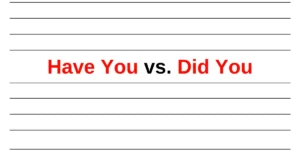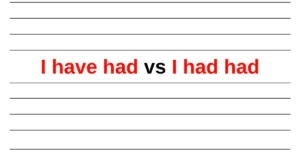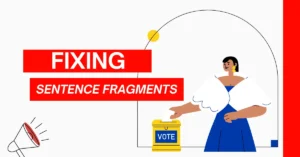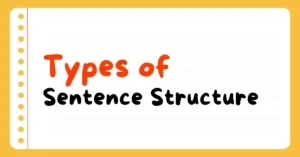Have you ever wondered whether to use cannot or can not when expressing an inability to do something? Both forms exist in English, but they have slightly different meanings!
Understanding this small yet significant difference can help improve your writing and speaking skills. So, let’s break it down in a fun and easy way!

CANNOT: When to Use It?
CANNOT is the more commonly used form and is written as one word. It means “not able to” or “unable to” do something. You’ll often find cannot in formal writing and daily conversations.
📝 Examples:
✅ Time past cannot be called back again.
✅ She cannot afford a new dress.
✅ The athletes cannot compete while suspended.
✅ I cannot only grow begonias but also identify them.
✅ You cannot make a crab walk straight.
💡 Quick Tip: You can also use can’t in informal speech instead of cannot.

CAN NOT: When to Use It?
The phrase can not (two words) is used when can is followed by not only… but also. It emphasizes additional information rather than simple negation.
📝 Examples:
✅ Roads can not only ruin the countryside but also divide communities.
✅ This product can not only smooth the throat but also cure common throat infections.
✅ The CIP system can not only clean the medicines but also control microorganisms.
✅ It can not only cure the disease but also strengthen the body.
More Tips To Use Cannot🎯
✔️ Use cannot when expressing inability or prohibition.
✔️ Use can not when can comes before not only… but also.
✔️ In informal speech, you can replace cannot with can’t.
Explore More:
- Well vs. Good: What’s the Difference and When to Use Each
 What is the difference between good and well. These two words might seem similar, but they’re used in …
What is the difference between good and well. These two words might seem similar, but they’re used in … - Have You vs. Did You: What’s the Real Difference?
 Imagine you’re meeting a friend in the evening, and you want to ask if they …
Imagine you’re meeting a friend in the evening, and you want to ask if they … - Difference Between I have had and I had had
 Have you ever found yourself tangled in the web of “I have had” and “I …
Have you ever found yourself tangled in the web of “I have had” and “I … - Understanding and Fixing Sentence Fragments
 In this lesson, you will be learning about sentence fragments. Ever written something that looks like …
In this lesson, you will be learning about sentence fragments. Ever written something that looks like … - Types of Sentence Structure: Simple, Fragmented, or Run-On
 In this English Grammar lesson, you’ll be learning about sentence structure, specifically focusing on simple sentences, fragments, and run-on …
In this English Grammar lesson, you’ll be learning about sentence structure, specifically focusing on simple sentences, fragments, and run-on …




